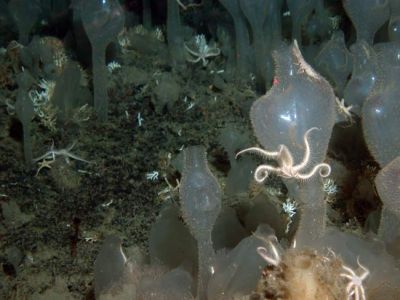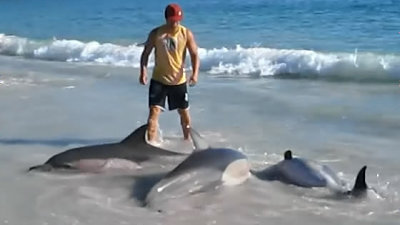More than 1 billion animals such as mussels and clams boil on the beach

In Vancouver, Canada, where it was reported that the temperature exceeded 40 degrees Celsius, more than 1 billion marine organisms such as shellfish were reported dead due to the effects of heat waves. It is expected that this situation will temporarily affect the water quality.
More than a billion seashore animals may have cooked to death in BC heat wave, says UBC researcher | CBC News
Thousands of Sea Creatures Found Boiled Alive After Canada's Deadly Heatwave
https://www.sciencealert.com/canada-s-sea-got-so-boiling-it-cooked-thousands-of-shellfish-and-starfish-alive
In late June 2021, Chris Harley, a marine biologist at the University of British Columbia, was walking along Kitsurano Beach in Vancouver, Canada, and found many marine life such as mussels, clams, starfish, and snails boiled. Did. It was said that there was a rotting odor around.
It has been reported that the temperature has exceeded 40 degrees Celsius in Vancouver due to the effects of record heat waves, resulting in a series of deaths.
Heat wave Canada 49.5 degrees 3 consecutive days temperature update, deaths one after another: Asahi Shimbun Digital
https://www.asahi.com/articles/ASP6Z3CCWP6ZUHBI008.html

In fact, when Harley et al.'S research team took a picture with an infrared camera on June 28, it was found that the temperature of shellfish reached 50 degrees or more in rocky places.

According to Mr. Harley, mussels can withstand temperatures of about 30 degrees for a short time. However, during the low tide of the afternoon, shellfish left on the beach for more than 6 hours had to be heated as they were.
When Harley and his research team conducted surveys on multiple coastlines, they found that mussels, starfish, and barnacles were dead in other places as well. Harley has told Canadian news media CBC that more than a billion creatures may have died in the heat wave.
This phenomenon is thought to temporarily affect water quality, as mussels and clams are involved in the filtration of seawater. Also, while the number of mussels is likely to recover in the next 1-2 years, it is possible that climate change will generate more heat waves than ever before.
Related Posts:







